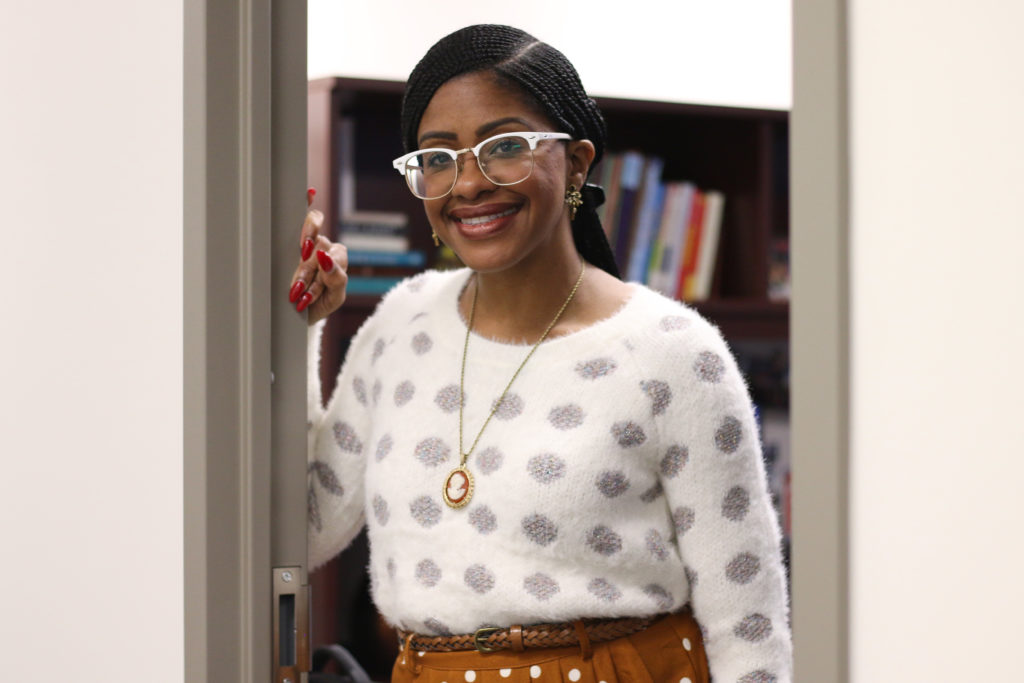Recent studies have shown that the number of health and science podcasts has grown exponentially over the past decade, and members of the GW community are no stranger to that trend.
Faculty and researchers in health and science departments have launched handfuls of new podcasts over the past several years as a means to communicate and publicize research projects and health issues in D.C. Faculty said podcasts reach a wide audience and help educate the general public about scientific topics and health issues in more digestible ways than a textbook or research report.
Maranda Ward, a visiting assistant professor of clinical research and leadership, said she taught online classes for the first time when she first began teaching at GW in 2017. She said she decided to launch a podcast to “humanize” the content of her course.
Ward’s podcast, “#EquityMatters,” discusses health equity and inclusion in D.C. Ward said she designed her podcasts with a student audience in mind, but the subject matter is applicable to anyone interested in learning more about health equity. Two episodes, each running about 25 minutes long, have been released so far, she said.
She said she initially created the podcast to make the subject matter “come alive” for her online students, but after receiving positive student responses, she decided to put the podcast on SoundCloud in addition to Blackboard.
The two episodes that were released last year received 345 and 280 listens, respectively.
Ward said her podcast focuses on “justice in health,” and the content stems from her own experiences and features her own “personal stories.”
“When I say, ‘Let me give an example with myself included,’ it can go a long way, and the students appreciate it,” she said.
Ward said she hopes to create podcast episodes next semester that focus on local issues like high rates of maternal mortality, especially among black women. She said she also hopes to discuss “hospital deserts” in Wards 7 and 8.
Adam Friedman, a professor of dermatology, said he created the monthly podcast “Ask the Investigator” more than two years ago. He said he typically records the podcast, which is sponsored by the Journal of Drugs in Dermatology, from home using his laptop and a microphone.
Friedman said the podcast first features an article from each month’s edition of the journal and includes an interview with the senior investigator. He said the interview aims not only to showcase the clinical relevance of the study but to also add information about how the investigator came up with the idea for the study, how the research team overcame obstacles and how the team collected data.
“The historical approach of reading a textbook, reading it a couple times, remember it and spit it out – that just doesn’t fly anymore in our current environment,” he said. “I think we are seeing extraordinary evolution in the classroom and also academia in general in regards to how information is disseminated. Podcasts are certainly one of those vehicles.”
Friedman added that his podcast is currently on a “little hiatus” because of limited funding, but he said it will return in June.
In January, the Rodham Institute launched the second installment of a student-led podcast to address issues of health equity in the District. Jehan El-Bayoumi, the executive director of the Rodham Institute, said podcasts are short, concise and “make these issues come alive.”
“We are inundated with so much information, especially that comes through emails and readings, so it’s nice when you are tired but cooking dinner or commuting, to learn something,” El-Bayoumi said.
The podcast, “Exploring Health Equity,” launched in late December with a four-episode installment and is posted on the Rodham Institute’s website. Each episode is about eight to 16 minutes long.
El-Bayoumi said the episodes feature interviews with community leaders in the District who hope to improve health care in the city.
Diana and David Hla, who were both interns at the Rodham Institute last summer, said they created the podcast last year to address issues of health disparity in D.C.
Diana Hla said she first became interested in podcasting through a course at Johns Hopkins University, where she is currently a junior double majoring in biophysics and molecular and cellular biology. She said research and information about health and sciences can sometimes be viewed as “dull and uninteresting,” but podcasts can use music, multiple interviews and quick, simple edits to keep listeners engaged.
“A common stereotype about learning science, with all its textbook readings, is that it can get boring, so we tried to use a more engaging and interesting medium in creating this podcast,” she said.





